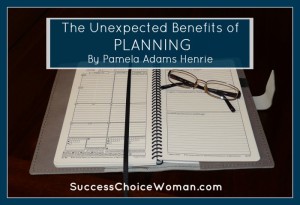 We are already into August, and the year is more than half over. At this point you may be feeling discouraged if you haven’t reached the goals you set at the beginning of the year. Don’t despair.
We are already into August, and the year is more than half over. At this point you may be feeling discouraged if you haven’t reached the goals you set at the beginning of the year. Don’t despair.
You may have fallen prey of one of the biggest culprits of unrealized resolutions — trying to make too many changes at once. For example, in his book The Power of Habit, Charles Duhigg relates that some doctors, in an effort to help obese patients lose weight, would try to radically alter their lives.
Doctors would give obese patients strict diets and tell them to join a gym, attend regular counseling sessions – sometimes as often as every day – and shift their daily routines by walking up stairs, for instance, instead of taking the elevator. Only by completely shaking up someone’s life, the thinking went, could their bad habits be reformed.
But when researchers studied the effectiveness of these methods over prolonged periods, they discovered they were failures. Patients would use the stairs for a few weeks, but by the end of the month, it was too much hassle. They began diets and joined gyms, but after the initial burst of enthusiasm wore off, they slid back into their old eating and TV watching habits. Piling on so much change at once made it impossible for any of it to stick (Charles Duhigg, The Power of Habit, p. 120).
Now, research is showing that focusing on cultivating what Duhigg calls keystone habits can cause widespread shifts. “Keystone habits offer what is known within academic literature as ‘small wins.’ They help other habits to flourish by creating new structures, and they establish cultures where change becomes contagious” (Charles Duhigg, The Power of Habit p. 120).
Planning is a keystone habit. It can create cascading positive change in your life. A few minutes planning each day can have some unexpected benefits. Among many other benefits, planning can give you clarity when obstacles arise, a greater amount of “free” time, a feeling of purpose to otherwise mundane tasks, less stress, focus, and the ability to be fully present at events. Incorporating one positive habit can lead to positive change in other areas.
For example, after incorporating the positive habit of planning, a customer found it was easy to start exercising after her planning session. Also, after exercising for a while, she found herself making healthier food choices. Another planner user relates that just by regularly looking at her ideals in the “Areas of Balance” she recognizes opportunities throughout the week related to her ideal that she otherwise would overlook. Many have said that the simple, intentional act of planning each morning sets the tone for the day, and they feel satisfied at the end of the day with their accomplishments. When they miss their planning session, they feel aimless and frustrated. One woman says that doing her End of Week Review during her weekly planning helps her recognize patterns in her life, which helps her self-correct and improve in areas she struggles with.
I challenge you to create small wins by doing monthly, weekly, and daily planning.
Monthly Planning:
1- Write down the previous month’s noteworthy events, successes, and lessons learned.
2- Assess each “Area of Balance” and write your ideal in each area. You are not expected to be at your ideal, or necessarily set a goal to reach that ideal, just get clear about what it is.
- Spirituality/Values
- Emotional Fitness
- Health/Physical
- Learn/Create
- Relationships/Family
- Finances/Self Reliance
- Serve/Help Others
- Organize/Beautify
3- Brainstorm goals for the month.
Weekly Planning:
1- Evaluate your previous week. What worked well? What didn’t? What did you learn? What should you eliminate or delegate? What insights did you have? What are you grateful for?
2- Spend a few minutes looking over your Area of Balance ideals and your monthly goals.
3- Write down some goals for the week.
Daily Planning
Each morning, or at night before you go to bed,
1- Look over your goals and your calendar
2- Write down your to-do’s. (Don’t overwhelm yourself with too many to-do’s.)
3- Highlight the three most important things to do the upcoming day.
That’s it.
Just spend 15-30 minutes in “Monthly Planning,” about ten minutes in “Weekly Planning,” and about five minutes in “Daily Planning,” and notice how other areas of your life start to come into balance.
Just creating this awareness of where you are and where you want to be creates movement.
Here are some tips to help you create the habit of planning.
1- Set your planner somewhere where you will see it in the morning, perhaps by your alarm clock or on the kitchen table. Seeing your planner can be the cue to remind you to do your daily planning.
2- When you see your planner, open it up, and spend just a few minutes planning.
3- When you are done, sit up straight, take some deep, deliberate breaths. Smile, and experience the joy of this small win to start your day and the unexpected benefits that follow. This becomes a reward that you will begin to crave.
Just take it one day at a time. Set up some small wins for yourself, and in the process, set up some positive success habits that create positive momentum. Commit to plan tomorrow, then commit to plan the next day, then the next. Before you know it, it will become automatic and the rewards will multiply.
